Vesna Manojlovic takes a look at the recently published RFC8890 and talks about why she's an advocate for technical communities working together with End Users on mutual empowerment.
In August this year, the Internet Architecture Board (IAB) published RFC8890, "The Internet is for End Users", which recommends that decisions made by participants of the Internet Engineering Task Force (IETF) should favour the needs of people who use the Internet over the needs of other parties: e.g. network operators, ISPs, governments, Law Enforcement Agencies, equipment vendors, content providers, and so on.
https://tools.ietf.org/html/rfc8890
In my role as Community Builder at the RIPE NCC, I spend a lot of time thinking about and discussing different topics raised by RFC8890, and coming from there, I see a number of similarities between the RIPE community and the IETF community (a point I'll return to shortly).
Here, though, I'd like to step out of my working role for a moment and talk about why I, as an independent member of the community, and as an advocate of "technical is political" (which this RFC confirms), and then also as End User, mother, engineer, hacker, ... find this advice interesting.
Also, while the RFC only says "for End Users", I'm curious about: for WHAT? For the benefit of? For the advancement of? For solidarity with? My suggestion is this: for the empowerment of End Users. In fact, in the second part of the article, I'll go even further and suggest that we should be thinking of this in terms of working together with End Users, for co-liberation!
"The Internet is for End Users"
The short RFC8890 is well worth reading. It was published by the Internet Architecture Board (IAB). and so has not gone through the consensus process of the IETF itself. However, IAB is responsible for the architectural oversight of IETF activities, and its 13 members have signed off on this RFC, which makes it a very strong statement of the principles that guide IETF decision-making.
The document provides a definition of "End Users" (spoiler: it's humans - including, indirectly, other humans in relations with direct users). It also explains why "End Users" should be the kept in mind while doing the IETF's work, and gives some suggestions on how to prioritise the end users needs.
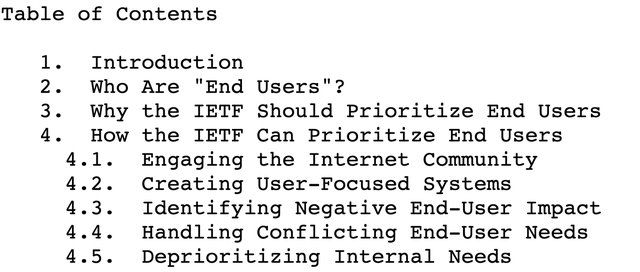
Here are some of my favourite quotes:
As the Internet increasingly mediates essential functions in societies, it has unavoidably become profoundly political; ...
It has created wealth for some individuals and companies while destroying that of others.
the IETF develops and maintains the Internet to promote the social good.
technology is so often used as a lever to assert power over users, rather than empower them.
inappropriate concentration of power on the Internet has become a concerning phenomenon -- one that protocol
design might have some influence upon.
we design the Internet for the pessimal environment;
if a user can be harmed, they probably will be, somewhere.
Technical, Political? Both
Within the IETF itself, the RFC has sparked some lively discussion; not everyone agrees with the IAB advice or with the author's views. One of the authors, Mark Nottingham, wrote a blog post to give background on the writing of RFC. He agreed to be quoted.
...the unofficial IETF credo:
‘We reject kings, presidents and voting.
We believe in rough consensus and running code.’
Sometimes the ability to send information (or the prevention of it) has real-world consequences that take power from some people and give it to others.
If the IETF’s decisions affect the design of the Internet, and the Internet is political, the IETF’s decisions are sometimes political too.
A community that agrees to principles that are informed by shared values can use them to navigate hard decisions.
Anthony Rutkowski has an opinion that too much empowerment is dangerous. As he wrote in CircleID :
(within the question of) "who are end users", the existence of malevolent actors is simply ignored.
The draft simply asserts that "goal" and "measurable success of the Internet" is to "empower users" — without ever attempting to mention, much less treat the potentially disastrous results of empowerment.
Personally, I completely disagree with Antony: for me, mutual and balanced co-empowerment is possible and desirable, while applying the "paradox of (in)tolerance".
Or, as Paul Wouters said:
"The IAB / IETF is reminding people that once you lose control of the end to end principle, the internet is no longer free and open. The good intentions of internet protocols protecting the user from harm is indistinguishable from oppressing the user's human rights of freedom of speech, freedom to gather and privacy."
Lessons for the RIPE Community
There are many similarities between IETF and RIPE: both started with a focus on technical governance and the growth of the Internet; they make decisions using consensus; they both have working groups; and in both, there is no membership - the community is open. There is also an overlap between participants in these communities, and they are each struggling with "diversity and inclusion" challenges, which coincides with the shift of focus of decision making - from technical merit towards impact on society. Or, as the RFC8890 calls it, the impact on End Users: humans.
While the RIPE community is officially "a forum open to all parties interested in wide area IP networks", since 1989 it has been mostly populated by "techies" - i.e. conventional ISP staff and academic Internet Infrastructure professionals, engineers, sys-admins, network operators, software developers, etc. With regards Internet Governance efforts, RIPE cooperates with other official groups ("businesses, governments, regulators and law enforcement agencies"). Only in the last few years has there been an explicit attempt to increase participation of the non-traditional humans from the "Internet Community", such as:
- Social scientists
- Non-cis-male humans
- Young people
- ... and other "underrepresented groups"
If you would like to help the RIPE community advance our focus on human-centric Internet, please join Diversity Task Force, and read more about it on labs.ripe.net/diversity.
Lessons from RFC8890
In addition to this, following the IAB advice to the IETF, RIPE may consider increasing "engaging End Users" (Section 4.1) through:
- Analysis of the impact of RIPE policies to the End Users
- and minimising "inappropriate concentration of power on the Internet" (Section 4.3)
- Consulting End Users, by reaching out to other professionals: journalists, industry associations, tech writers...
- (financially) Supporting not-for-profit user community representatives: civil society, user groups, advocacy associations...
- Co-locating and co-hosting our events with existing events of other "stakeholder" communities (digital human rights; FLOSS conferences; hackers events...)
- Actively participating in events and fora of adjacent communities: "meet with them on their terms -- take the initiative to contact them, explain our work, and solicit their feedback."
Lessons from Adjacent Communities
Some of the communities affiliated and overlapping with RIPE are also busy with analysing power disparities and focusing on the human aspects of the Internet:
- Already in 2002, ISOC said "Internet is for Everyone" (RFC3271); here are some of their more recent programs for empowerment:
- Grants for greening the Internet & transforming economies (opened 1st September, deadline on rolling basis)
- Closing the digital divide: community networks, “do it yourself” networks built by people for people.
- In 2014, Association for Progressive Communication (APC) has organised the first Feminist Internet meeting, and since then, multi-language Feminist Internet Principles has been kept up-to-date by activists and technologists:
- https://feministinternet.org/en
- "Currently there are 17 Principles total, organized in 5 clusters: Access, Movements, Economy, Expression, and Embodiment. Together, they aim to provide a framework for women's movements to articulate and explore issues related to technology."
- In 2017, Geoff Huston wrote about "The Internet's Gilded Age"
- "In today’s world, there is once more a massive concentration of corporate power."
- "We now need robust active public regulatory frameworks that can support vibrant industry competition, fundamental innovation and maintain the enduring public value of our Internet."
- Mozilla
- "Diversity and Inclusion" resources, such as Community Participation Guidelines, are maintained on GitHub
- August 2020 blog post: Understanding Diversity, Equity, Inclusion, And Taking Action
- NGI: Next Generation Internet, presented at RIPE79, "is a European Commission initiative that aims to shape the development and evolution of the Internet into an Internet of Humans."
- here is a forum where you can take part: https://edgeryders.eu/c/ioh
- "AI Now Institute" published recommendations for the Artificial Intelligence (AI) industry in the 2019 report:
- "The AI industry needs to make significant structural changes to address systemic racism, misogyny, and lack of diversity. The AI industry is strikingly homogeneous... "
- co-authored by one of the the former co-chairs of MAT-WG, Meredith Whittaker
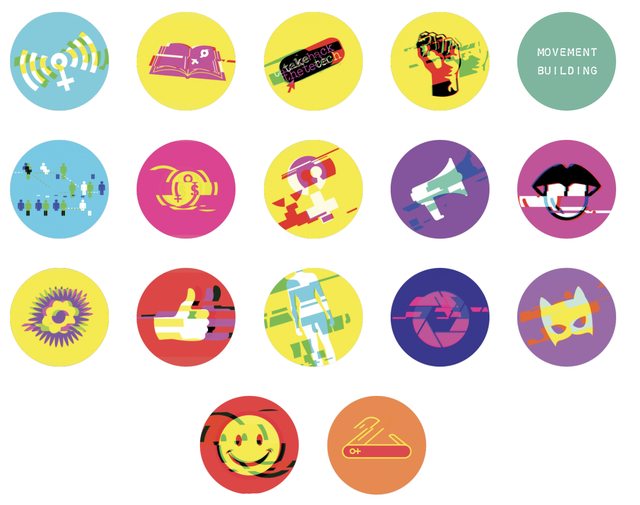
"Feminist Principles of the Internet", illustrated
Towards Co-Empowerment
At the first reading of RFC8890, I was happy that the interests of End Users are (finally) recognised by the "top" of the technical Internet Governance. In my own work on "Ethics in Internet Measurements" and "Ethics in Technology", I also pointed out that, in order for the measurements - or technology - to be ethical, it should take into consideration End Users: fulfil their needs, and not cause them harm.
That was in 2017. Now, in 2020, in the RFC8890, I am missing the references of mutuality, agency on the side of End Users, and humility on the side of engineers. End Users are not helpless and ignorant, they don't only have to be protected from harm and engaged. They can contribute just as much to the IETF, if not more, than the IETF can give to them.
Technical communities can benefit from "decolonising the Internet" discourse, and intersectional feminism.
Here are some relevant quotes from "Data Feminism" book:
"In a world in which data is power, and that power is wielded unequally, data feminism can help us understand how (power disparity) can be challenged and changed."
"Co-liberation has to trust that the people who experience the most harms from a social issue have the best ideas for reimagining it."
"There is a famous saying from aboriginal activists that goes like this,
If you have come here to help me, you are wasting your time.
But if you have come because your liberation is bound up with mine, then let us work together."
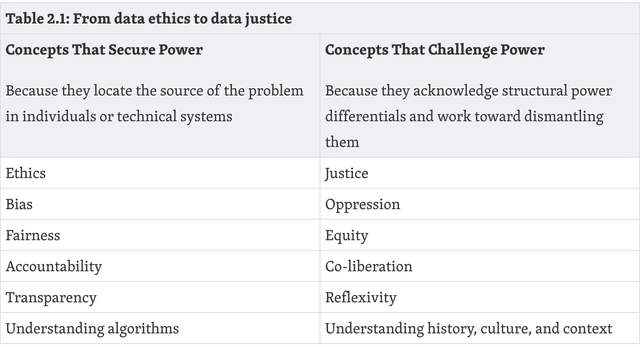
Table copied from "Data Feminism" book
In addition to working towards (co)empowerment together with End Users, I am working on the tools for the technical communities to focus on energy efficiency, resources exhaustion and the impact that the technologies developed by IETF / RIPE participants and FLOSS developers have on the environment.
All humans (and non-humans) need a living planet in order to enjoy the Internet.
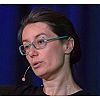

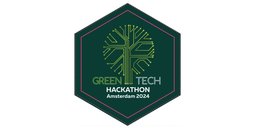
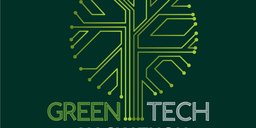

Comments 2
Comments are disabled on articles published more than a year ago. If you'd like to inform us of any issues, please reach out to us via the contact form here.
Vesna Manojlovic •
Pingback: This article was republished by Jaap van Till on his blog: https://theconnectivist.wordpress.com/2020/10/01/the-internet-is-for-the-empowerment-of-users/
Vesna Manojlovic •
Cory Doctorow, digital rights activist and science-fiction writer, also wrote about this RFC: https://pluralistic.net/2020/10/05/florida-man/#user-agents